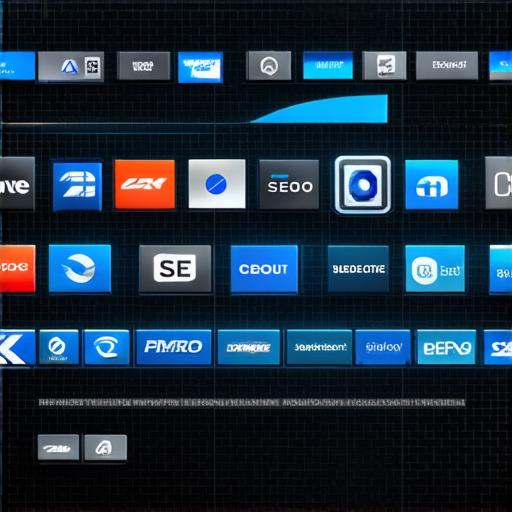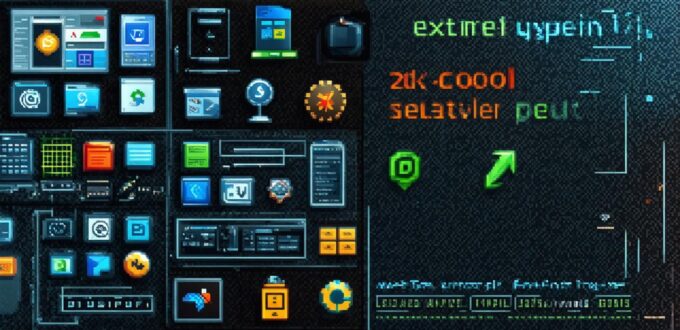As software developers, we are constantly bombarded with new applications and technologies that aim to streamline our workflows and make our lives easier. But with so many options available, it can be challenging to know which ones are the best fit for our needs. In this article, we will explore 20 different kinds of application software that every software developer should be familiar with.
1. Integrated Development Environments (IDEs)
Integrated Development Environments (IDEs) are software applications that provide developers with a comprehensive set of programming tools for writing, debugging, testing, and deploying code. Some popular IDEs include Visual Studio Code, Eclipse, and IntelliJ IDEA. These tools make it easy to manage multiple coding projects at once and offer features such as syntax highlighting, code completion, and debugging tools.
2. Version Control Systems (VCS)
Version Control Systems (VCS) are software applications that allow developers to track changes made to code over time and collaborate with other team members on projects. Git is the most popular VCS used by software developers, but there are also others such as SVN, Mercurial, and Perforce. With a VCS, you can easily revert code changes, merge multiple versions of code, and share your work with others.
3. Debugging Tools

Debugging tools are software applications that help developers identify and fix errors in their code. Some popular debugging tools include Chrome DevTools, Visual Studio’s Debugger, and Xcode’s Instruments. These tools allow you to step through code line by line, set breakpoints, inspect variables, and diagnose issues that may be causing your code to crash or behave unexpectedly.
4. Project Management Tools
Project Management Tools are software applications that help developers organize their work, track progress, and manage deadlines. Some popular project management tools include Trello, Asana, and Jira. These tools allow you to create tasks, assign responsibilities, set milestones, and monitor progress in real-time.
5. Code Editors
Code editors are software applications that allow developers to write code and manipulate text files. Some popular code editors include Visual Studio Code, Sublime Text, and Atom. These tools offer features such as syntax highlighting, code completion, and support for multiple programming languages.
6. Collaboration Tools
Collaboration tools are software applications that allow developers to work together on projects in real-time. Some popular collaboration tools include Slack, Microsoft Teams, and Zoom. These tools make it easy to communicate with team members, share files, and collaborate on code.
7. Document Management Systems (DMS)
Document Management Systems (DMS) are software applications that allow developers to store, manage, and share documents securely. Some popular DMS include Dropbox, Google Drive, and SharePoint. These tools make it easy to access files from anywhere, share files with others, and collaborate on projects.
8. Database Management Systems (DBMS)
Database Management Systems (DBMS) are software applications that allow developers to store and manage data in a structured way. Some popular DBMS include MySQL, PostgreSQL, and Oracle. These tools make it easy to create and manage databases, run queries, and integrate with other applications.
9. Content Management Systems (CMS)
Content Management Systems (CMS) are software applications that allow developers to create and manage websites and web content. Some popular CMS include WordPress, Drupal, and Joomla. These tools make it easy to build and customize websites, manage content, and integrate with other applications.
10. Customer Relationship Management (CRM) Software
Customer Relationship Management (CRM) software is a set of applications that help businesses manage customer interactions and sales processes. Some popular CRM software include Salesforce, HubSpot, and Zoho CRM. These tools make it easy to track leads, manage deals, and improve customer satisfaction.
11. Human Resource Management Software (HRM)
Human Resource Management Software (HRM) is a set of applications that help businesses manage their employees’ data and processes. Some popular HRM software include BambooHR, ADP, and Paylocity. These tools make it easy to manage employee information, track time and attendance, and automate HR tasks.
12. Enterprise Resource Planning (ERP) Software
Enterprise Resource Planning (ERP) software is a set of applications that help businesses manage their core processes such as finance, human resources, and supply chain management.
